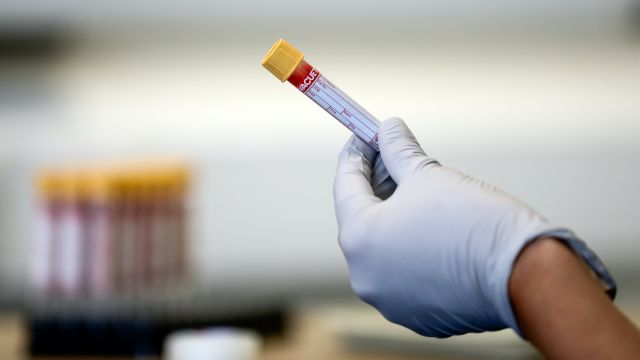The scientists aim to develop better tests to define immunity and to study the body’s immune response to SARS-CoV-2.
They will further investigate why some people suffer from severe life-threatening Covid-19 while others have mild or asymptomatic infections but can still transmit the virus.
Understanding how our immune systems respond to Covid-19 is key to solving some of the important questions about this new disease
The studies will also try to determine when and how immunity persists, or whether people can become reinfected.
Chief Medical Officer for England and the head of the National Institute for Health Research (NIHR), Professor Chris Whitty, said: “Understanding how our immune systems respond to Covid-19 is key to solving some of the important questions about this new disease, including whether those who have had the disease develop immunity and how long this lasts, and why some are more severely affected.
“This investment by the NIHR and UKRI will help immunology experts to discover how our immune systems respond to SARS-CoV-2, including our T cell response.
“This is vital information to help prevent and treat the disease.”
The UK Coronavirus Immunology Consortium (UK-CIC) will receive £6.5 million to bring together leading immunologists from 17 UK research institutions.
It will investigate how long Covid-19 immunity lasts, why some people are able to fight the virus better than others, why people’s immune responses cause damage, especially to the lungs, and how the virus hides from the immune system and how this can be tackled.
UK-CIC will also look at whether immunity to previous infection with seasonal coronaviruses (which cause the common cold) alter a person’s outcome with SARS-CoV-2.
Better understanding of these immune responses, particularly the T cell response, could provide targets for new therapies to treat Covid-19 and inform the efforts to develop a vaccine.
The project will use samples and data from major UK Covid-19 projects already under way.
Professor Paul Moss, UK-CIC principal investigator from the University of Birmingham, said: “Understanding the complexities of the immune response to SARS-CoV-2 is key to successfully developing new diagnostics, treatments and vaccines against Covid-19.”
He added: “There is so much that we still need to learn about how the novel coronavirus interacts with our immune system and, with this investment, we have a unique opportunity to answer these key questions and hasten effective pandemic control.”
Professor Tracy Hussell, theme lead for UK-CIC, from the University of Manchester, said: “The immune system is one of the most complicated systems in the human body but understanding how it reacts during and after infection with SARS-CoV-2 is critical to our ability to control this pandemic.”
The Humoral Immune Correlates of COVID-19 (HICC) consortium will receive £1.5m to study the humoral immune response – molecules produced by the immune system to fight infection, including antibodies.
It will focus on two cohorts – NHS workers to track immunity over 12 months, and patients who have been admitted to hospital.
The consortium is a collaboration led by Professor Wilhelm Schwaeble and Professor Jonathan Heeney at the University of Cambridge and Dr Helen Baxendale at Royal Papworth Hospital NHS Foundation Trust.
They said: “Understanding the role of antibody responses to SARS-CoV-2, and the role that the overactivation of the immediate innate immune response to the virus plays through complement activation in the initiation and maintenance of inflammatory disease, is critical to improve the clinical management of life-threatening cases of Covid-19.”
The third study will specifically focus on the key features of fatal Covid-19 and the impact the virus has upon the lungs and other vital organs.
The project called Inflammation in Covid-19: Exploration Of Critical Aspects Of Pathogenesis, or ICECAP, will receive £394,000.
All of the studies are funded by UK Research and Innovation (UKRI) and the NIHR.







